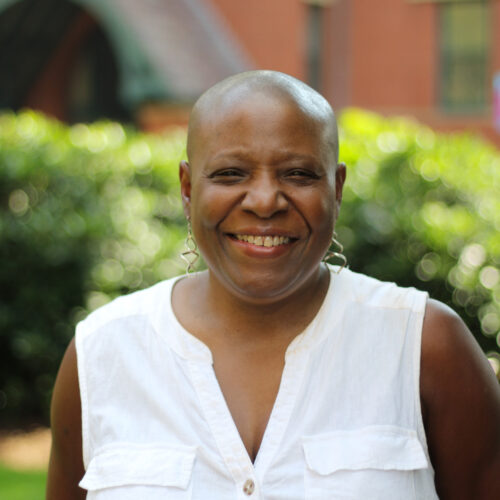Engaging in Difficult Conversations.

Engaging in Difficult Conversations
Yvette Cozier, associate dean for diversity, equity, inclusion & justice, shares thoughts on how we can constructively conduct difficult conversations to create a healthier world.
In my last note, I wrote about the importance of creating a diverse, inclusive community, in which everyone brings their unique perspective to bear on the issues with which we engage. Today, I will share some thoughts on the importance—and challenges—of having the at-times difficult conversations that characterize this engagement. A central part of our work is engaging honestly with the issues that shape health. This means having discussions which can be emotional, hard. Our capacity to have these hard conversations informs our ability to think through problems, strengthen our bonds as a community, and articulate a vision for a healthier world. Some thoughts, then, on how we can conduct these conversations in a way that best serves our mission as a school and our values of diversity and inclusion, towards the goal of creating the healthiest possible future.
At the root of our conversations is a truthful appraisal of the issues that shape health. At SPH, we are committed to the pursuit of truth. This commitment aligns us not only with the wider mission of academia, but with the activist tradition that informs so much of our work. The pursuit of truth is at the heart of all justice-oriented change movements. Policy goals may differ—from the push for voting rights and access to public accommodations for African Americans during the Civil Rights era to, in more recent years, the movement for marriage equality. But at the heart of these goals is a commitment to the truth that we are all part of the human family and deserve equal rights and protection under the law. Whenever our society conflicts with this truth, it produces an injustice which we must acknowledge and correct, no matter how hard or uncomfortable the process of doing so may be.
This correction begins with our willingness to have the conversations that get us to the truth. Such conversations are not always easy. Pursuing the truth means, at times, running up against our own biases and engaging in dialogue on what can feel like unsteady ground. It also means accepting the possibility that the truth can be expressed by those with whom we disagree. Bayard Rustin said, “If a bigot says to me, ‘the sun is shining.’ If the sun is shining, I say, ‘Yes the sun is shining,’ because I want to tell the truth. My view is not their view.” In other words, we don’t have to agree on everything to begin a conversation; we simply need to be willing to talk. Such discomfort can be hard to sit with. It can also be a sign that we are on the right path, that we are having conversations which—however hard they may be—truly serve the creation of a healthier world, by serving the pursuit of truth.
Given that hard conversations are unavoidable in our pursuit of a healthier world, how can we most constructively conduct them? I would like to offer two thoughts about how we can do so.
First, by embracing the virtue of courage. Courage helps us to take the initial step towards having difficult conversations. It also helps us to stay engaged even when these conversations prove challenging. And it keeps us open to learning the truth no matter what the truth is revealed to be—even when it is not what we expected or hoped for. This reflects the heart of the scientific method that underlies so much of our work, in which we submit a hypothesis to rigorous testing and accept the outcome of this process regardless of whether it confirms what we first thought. Courage also helps align us with the current historical moment. As the present grows more uncertain, courage is a necessary precondition for all we do. Making the world better means first having the courage to face truths about it—both the good and the bad—and to engage with these truths with our eyes open.
Second, as we conduct hard conversations, we should do so embracing the compassion that helps us envision a healthier future. If courage helps us engage with the world, compassion helps us to see how we can make it better. Compassion expands our moral imagination, helping us define a vision of a better future. When we share this vision, we can then engage in difficult conversations with the understanding that, as hard as these conversations may sometimes be, they are ultimately in service of something we all want: a better, healthier world.
At SPH, we have worked to facilitate such conversations in a range of ways. At our school events, we come together to discuss the issues that animate contemporary public health, giving these issues an honest airing, not shying away from the difficulties they can present. We also engage with difficult issues through our diversity and inclusion events, affinity groups, and in the online space, where we explore difficult topics through the lens of compassion and community. These fora are part of our ongoing efforts to become ever-better at engaging in the hard, necessary conversations that enable our pursuit of truth. The more we can have these conversations in a context of inclusion, open-mindedness, and mutual respect, the more effectively we can support a healthier world.


Comments & Discussion
Boston University moderates comments to facilitate an informed, substantive, civil conversation. Abusive, profane, self-promotional, misleading, incoherent or off-topic comments will be rejected. Moderators are staffed during regular business hours (EST) and can only accept comments written in English. Statistics or facts must include a citation or a link to the citation.